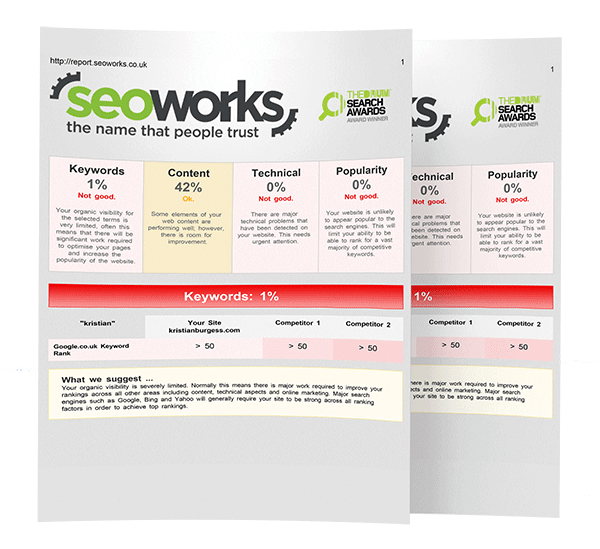Mobile First Indexing: What It Means For Your Website
The popularity of smartphones has changed the way that websites are indexed on the Internet. Decades ago, when websites were first made, everyone was using static HTML pages. PHP sites and many others came later, leading to dynamic or responsive web pages that would change based upon the device that was viewing it.
Now Google is making a shift to Mobile First Indexing. Let’s discuss what this is and what this means for your website, especially if you are trying to get more traffic on a daily basis.

What Is Mobile First Indexing?
Mobile first indexing was initiated by Google. It is simply the practice of indexing the mobile version of a website, making it the main version that will be indexed in the search engines for mobile viewers. Although the version of the website that will be seen from a PC is still indexed, the priority is shifting to those that are designed to be viewed by a mobile device.
Matter Solutions did some research and found that today, about 50% of all people viewing websites are accessing them using some type of mobile device. This shift in behaviours has prompted the move to mobile first indexing.
Through 2018, Google will be adopting this approach for indexing websites. It was initially tested with authority sites and will subsequently be applied to all others that live in the Google index. Once the testing phase is over, this mobile-first strategy will become the predominant way that websites are indexed.
How Will This Affect Your Ability To Rank In The Search Engines?
As mentioned before, dynamic or responsive websites are becoming the standard. These are site designs that work in a very unique way. They can actually tell what type of device is browsing the website, causing it to display the version that will be most easily seen on that device.
If you are focusing on search engine optimisation as your primary way of getting targeted traffic, you may soon find that many of your top positions will begin to fall. That is why it is so important to convert your website to a theme that is dynamic, thereby eliminating the possibility of losing your search engine positioning.
What Google Says About Mobile First Indexing
Google has assured people with websites that their way of indexing pages and posts has not changed at all. They have stated that there are not two separate search results, one for regular websites, and the other for mobile ready themes.
They have sent out notifications to those that have their sites on Search Console, alerting them to the importance of migrating from a standard website to a website with a responsive theme. They have also stated that websites that are mobile ready will undoubtedly receive an increased crawl rate from the Googlebot which can also help index more of their pages. All of this was announced on the Google Webmaster Central Blog back on March 26 of 2018.
How To Upgrade Your Current Website Easily
Upgrading your website to one that is also mobile ready is as simple as using a theme that is responsive. Most people today use some type of blogging platform. For example, if you are using WordPress, you simply have to use a mobile responsive theme instead of the standard one that you probably have. If you have a very specific topic for your website, your designer will have to make these changes. You still have time as the full rollout of mobile first indexing has not occurred, making this less imperative but still necessary.
How Mobile First Indexing Can Benefit Your Business
There are a few best practices that website owners must follow to take advantage of mobile first indexing. Since everything is changing from a focus on desktop versions of websites to mobile versions, it’s a simple matter of changing your current theme, to ensure that the experience for the end user is appropriate on a mobile device. This is essential if you are serious about getting more traffic, and offering a better user experience. More people spend time on their mobile phones than they do on an actual computer, which means you will have a higher probability of getting new visitors on a regular basis.
Since Google has also stated that there will be increased amounts of Googlebot activity, this should motivate website owners to post unique content. The goal that Google always has is to provide a better experience for people that use their search engine. In this case, they are catering to mobile phone users that surf the web, and you can benefit from this change.
Changes That You Need To Be Aware Of
It should be noted that there are certain things that will be changing once this emphasis on mobile ready websites goes into full effect. However, there are other aspects of building sites and indexing them that will not change at all. For example, when you use a theme that will present a mobile-friendly version of your website, even though it changes in its appearance, this will not affect your rankings at all. There will also be no change to canonical AMP HTML pages; however, there are three changes that you need to be aware of.
First of all, Google will be indexing separate URLs for each type of page for indexing purposes. For example, your desktop URL for each page may be different to your mobile URL. Second, Google is going to be emphasising the use of mobile optimised content if you want it to be indexed properly. Finally, in regard to AMP related content, Google is going to show a preference for non-AMP URLs.
Although change seems to be the only constant on the Internet, this particular change is good. When you are able to shift your website to one that is mobile responsive, you are giving it the best chance to see an increase in your traffic. That is because of the changing habits of people that increasingly use their smartphones to search. Since more people spend time on their smartphones than they do a PC, you have a higher probability of receiving more traffic to your mobile-ready pages.
It may take a little bit of work to be fully compliant, but in the end, it is going to be beneficial for almost everyone.

